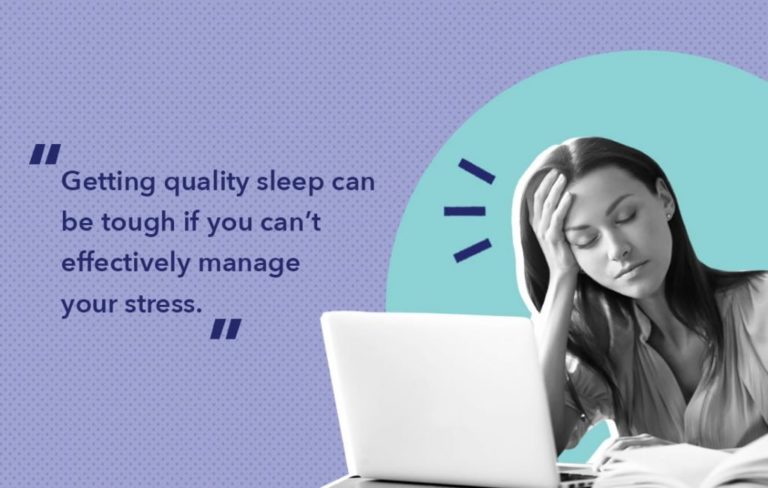
Getting a good night’s sleep when you’re stressed can feel like an impossible task. In this article, I’ll explore some ways you can relax to help you get better shut-eye.
First, I’ll define stress and look at how it impacts sleep. I’ll then offer you expert advice on practical ways you can reduce your stress so that you can sleep better. Finally, I’ll touch on what has been stressing us out in recent years by discussing recent stress trends that inhibit rest.
Note: These general recommendations should not be taken as medical advice. If you have any health-related questions regarding sleep, consult your physician or a trained medical professional.
How are Stress and Sleep Connected?
According to the National Institute of Mental Health, stress refers to how the brain and body respond to a demand, such as a traumatic event, a massive life change, or work performance. (1)
Poor sleep quality is linked to higher levels of stress (2), and higher stress levels are linked with shortened total sleep time and an increased likelihood of sleep disorders. (3) However, having the right amount of quality sleep (seven to eight hours for most adults) can actually reduce your stress levels. (4)
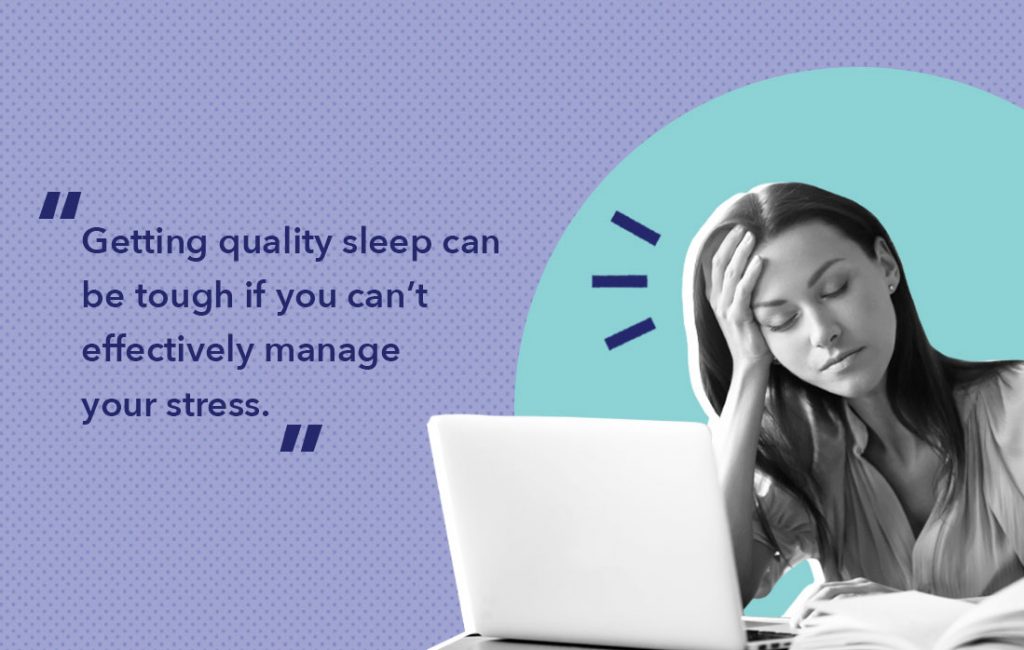
Dr. Mary Gay, PhD, notes that getting quality sleep can be tough if you can’t effectively manage your stress, since stress can impact sleep and vice versa.
When you’re stressed, your brain goes into survival mode, making it harder for you to store memories and do anything complex. This is because when you engage one part of your brain, the other parts of your brain have less energy to perform. (5) Sleep psychologist at Somnus Therapy, Katherine Hall, attributes this to your mind entering the “fight or flight” state when you’re stressed.
This “fight or flight” state can also keep you from sleeping by making you more likely to respond to slight noises and movements instead of sleeping through them. (This isn’t great if you share a bed with someone who snores!)
How to Reduce Stress for Better Sleep
Let’s check out some ways you can increase your chances of getting quality sleep by reducing your stress. I asked sleep and mental health experts to provide tips on how to do this.
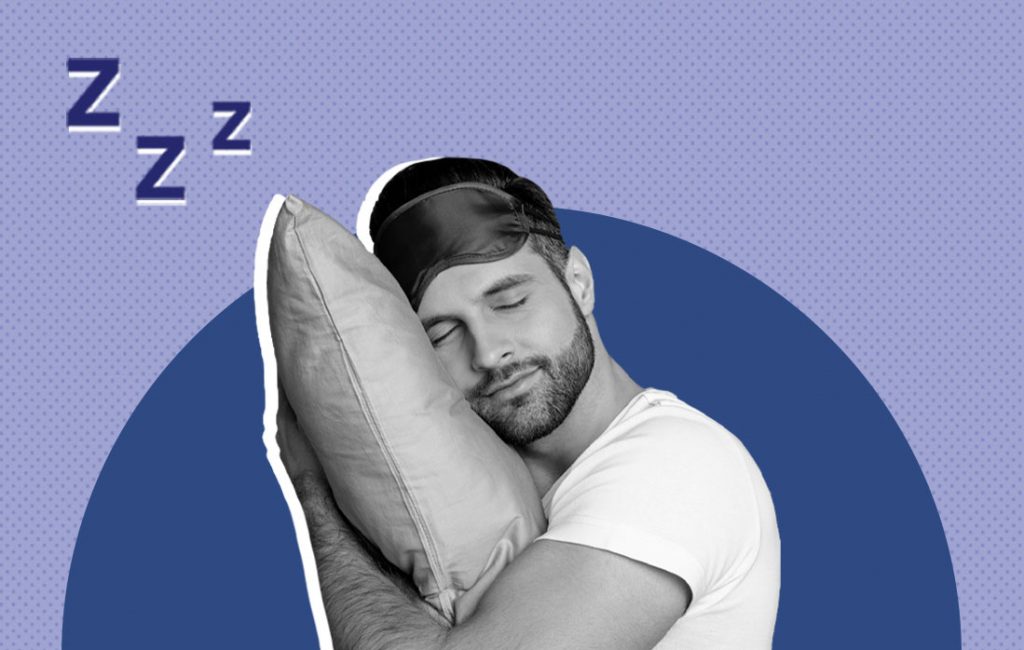
Practice Good Sleep Hygiene
Proper sleep hygiene can be incredibly helpful for relaxation and managing stress at night. A few things you can do to help induce restful sleep are:
- Reserve the bedroom for sleep and sex only
- Keep a cool temperature in the bedroom
- Pick a bedtime ritual to help you relax before bed
- Avoid naps in the day after 3pm
- Avoid difficult conversations before bedtime
- Avoid stimulants like nicotine and caffeine three hours before bedtime (caffeine stays in the body for 5-7 hours)
- Avoid screen time at least one hour before going to bed
- Avoid large meals several hours before bedtime
Dr. Gay says it’s best to limit your social media use and your time spent consuming stressful media (political news, scary movies, etc.). She suggests having an electronics-free nighttime routine. Similarly, Dr. Prianca Naik, MD, suggests, “First thing in the morning for 10-15 minutes, don’t get on your phone. Set an intention for the day and practice gratitude. This places our mind in a positive frame.” This might be difficult at first, but you can do it!
Dr. Gay also says that the right sleep environment will help you catch some Zzz’s. One way to create this is by choosing the right mattress for you. This will depend on a variety of factors such as your size, weight, and preferred sleep position, as there’s no “one-size-fits-all” when picking a mattress. Just make sure that your mattress provides comfort and proper spinal alignment.
Do Not Pressure Yourself
“The first thing to note is that sleep is involuntary, so trying to force sleep will only cause you to be more aware of your stress, anxiety, and thoughts. One of the first things you can do to reduce stress is to take the pressure off,” says Katherine.
She offers this advice for not pressuring yourself to fall asleep:
- Don’t panic. Rather, remind yourself that stress won’t help you sleep. Instead, take a few deep breaths and keep your mind from spiraling out of control.
- Don’t look at the clock. Turning your clock away from your bed will help prevent you from fueling anxiety about not falling asleep as the night progresses.
- Focus on relaxing rather than sleeping. Use relaxing music or guided meditation to help you focus on relaxing your body. You can also picture your tension leaving as you feel your body sink into the bed.
- Know that your body is still getting rest. Even if you’re not asleep, your body is getting rest just by relaxing in bed. Thinking in this way can help you worry less and drift off to sleep.
- Schedule a time to worry for 15 to 20 minutes early in the evening. Instead of trying to force your mind to quiet down, preemptively tackle anxiety by setting aside time just for that.
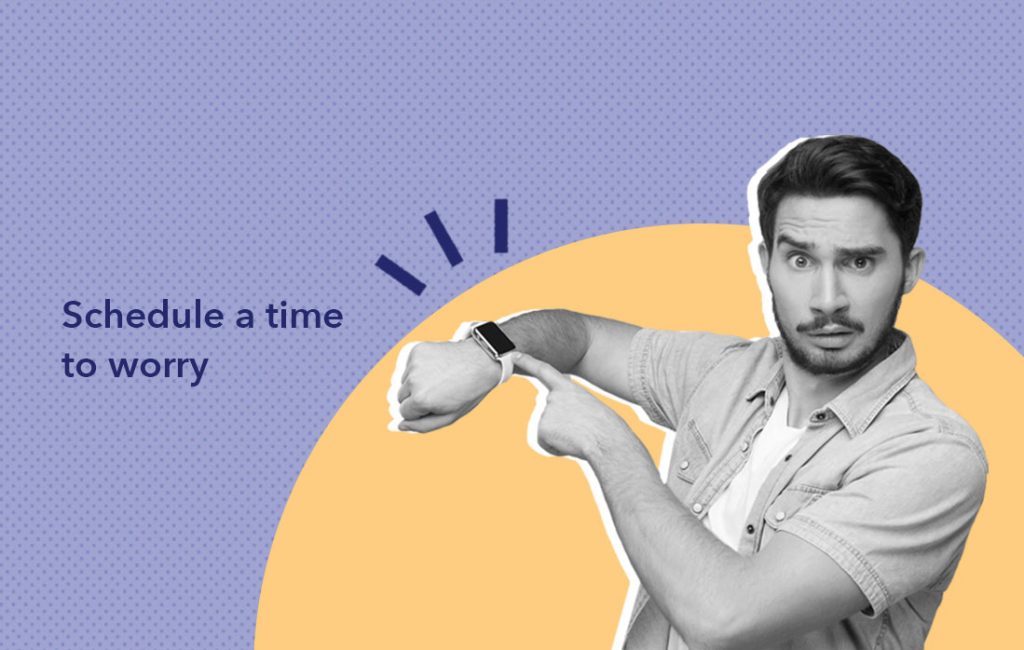
Reframe Your Mindset
Are your thoughts keeping you from sleeping? Reframing them might help! Health psychologist, Dr. Rae Mazzei, provides the following examples for how to do this:
- Thought: “I can’t sleep and will be so tired tomorrow.”
Reframed Thought: “I have had many nights of good sleep and a little less sleep will be fine.” - Thought: “I have so much to do and will never get it done.”
Reframed Thought: “Even though I have a lot to do, I’ll focus on it tomorrow and do the best I can to get everything done.”
Take Care of Your Emotional State
Try journaling with a twist: get a destruction journal. “When the emotions and stress are intense, we might need a more intense way to express ourselves in order to get the stress out of our system. Try using a journal dedicated to destruction. They actually sell pre-made versions of this with prompts for each page. These prompts can consist of ripping the paper, scribbling on the paper, stepping on the paper. All of these are good ways to get negative energy out of your body for better rest,” explains licensed mental health counselor, Jocelyn Patterson.
Get out and socialize. Licensed marriage and family therapist, Alisha Sweyd, explains that when we are feeling stressed, overwhelmed, depressed, or any other difficult emotion, we will often isolate to try to protect ourselves or process it all, which can actually be the opposite of helpful. She explains that, “We are meant to be in community with others, and the research shows how being connected strongly to a small community (think church or CrossFit) has incredible health benefits. One of those most powerful benefits is the stress relief. Being around people who can relate while we vent, or distract us to get our minds off of our struggles, that type of socialization, will relieve stress in incredible and helpful ways.”
She also suggests laughing, something that has worked when working with her first responder patients. She explains that, “Physically, laughing can relieve tension and stress responses. It brings more oxygen into your lungs, and gets your organs working in the way they are supposed to, which then tells your brain everything is ok. Emotionally, it can brighten up your brain and amygdala (emotion regulation center) which alleviates your moods and relaxes your brain and body.”
Practice Mindfulness
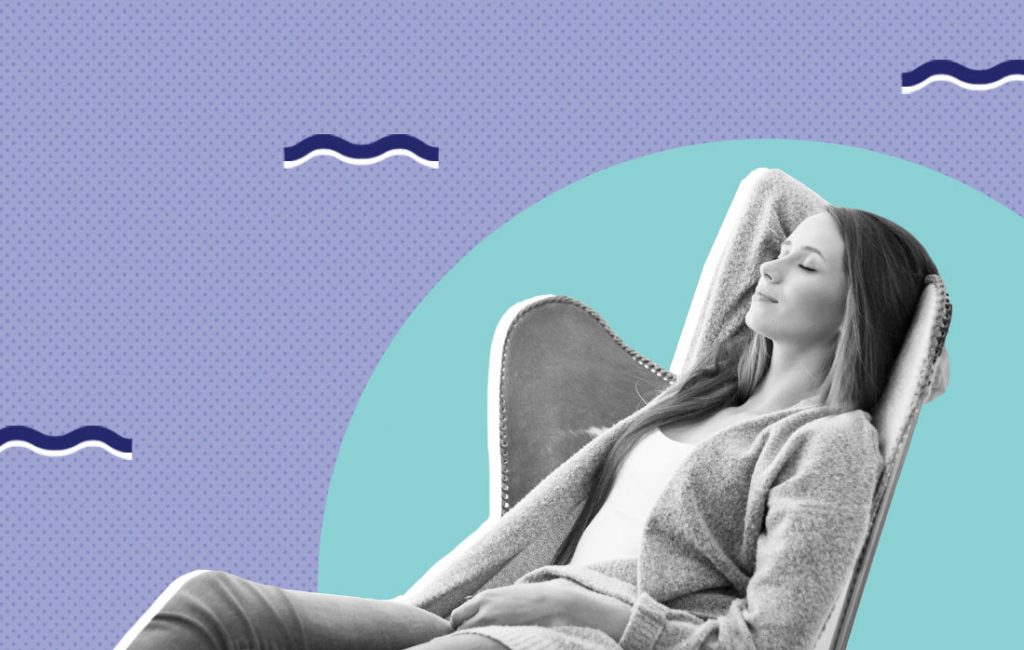
Katherine also says that practicing mindfulness daily can help your emotional state. She says mindfulness helps you focus all your senses on the present, rather than being concerned with the past or future. One way she recommends reducing stress by practicing progressive muscle relaxation (PMR). This is a form of mindfulness in which you promote relaxation through tensing and relaxing each muscle group.
Director of Relational Psych Group, Dr. Carly Claney, suggests performing a methodical and repetitive task to focus your energy and mind on. Some examples include brushing your hair, painting your nails, cutting vegetables, or mise en place for a meal.
Chris Lam is a private practice social worker, and he shared with me a very specific visualization example to use while in bed and trying to sleep:
- Imagine looking at the hand of a teacher holding a piece of chalk and about to write something on the chalkboard.
- Then, envision the hand slowly moving towards the chalkboard and then seeing the chalk hit the chalkboard.
- The hand starts to move and you see the chalk writing out the letters of your name.
He explained that the key to this strategy is really visualizing the micro movements of the action. This example is chalk writing on a chalk board however, it can be easily replaced by any other chosen motion.
Stay Active and Eat Healthy
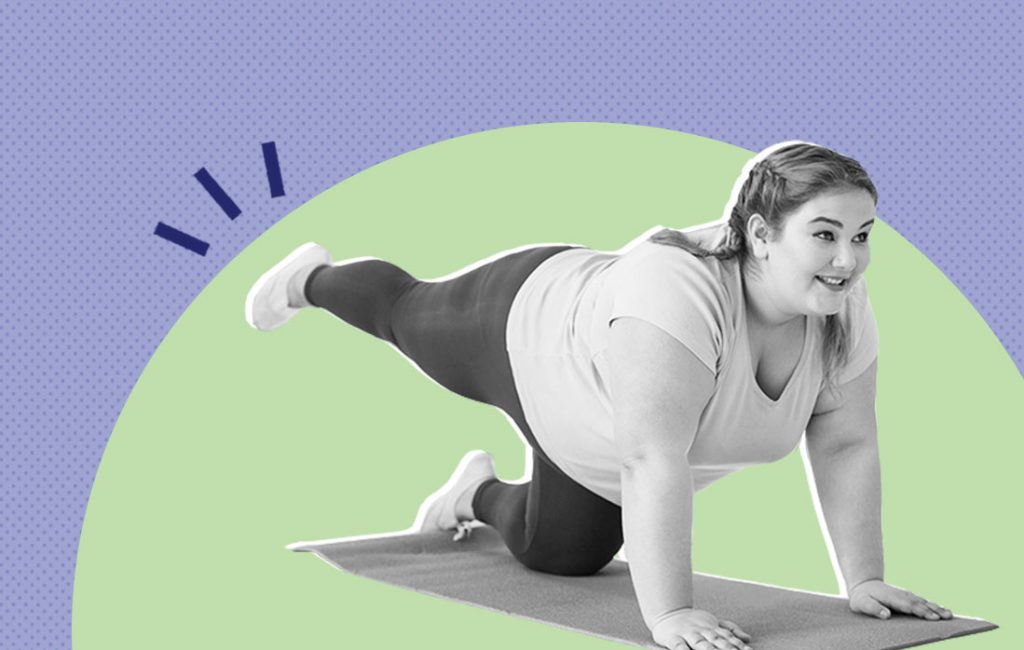
As the song says, “Get on your feet!” Dr. Gay says that exercise is among the most effective ways to manage and reduce your stress. She also says a healthy diet is essential, as it promotes your overall well-being.
Studies confirm that keeping physically active during times of high stress can help prevent negative effects on sleep. (6) This can be hard to do, since stress can lead to poor health decisions, impeding our efforts to exercise. (7)
“Swimming in particular can be a great stress relieving tool. When we swim we practice paced breathing. If you have spoken with anyone about stress you have probably heard, “take a deep breath”, and that is exactly what you are doing when you swim,” says licensed social worker, Vicky Woodruff.
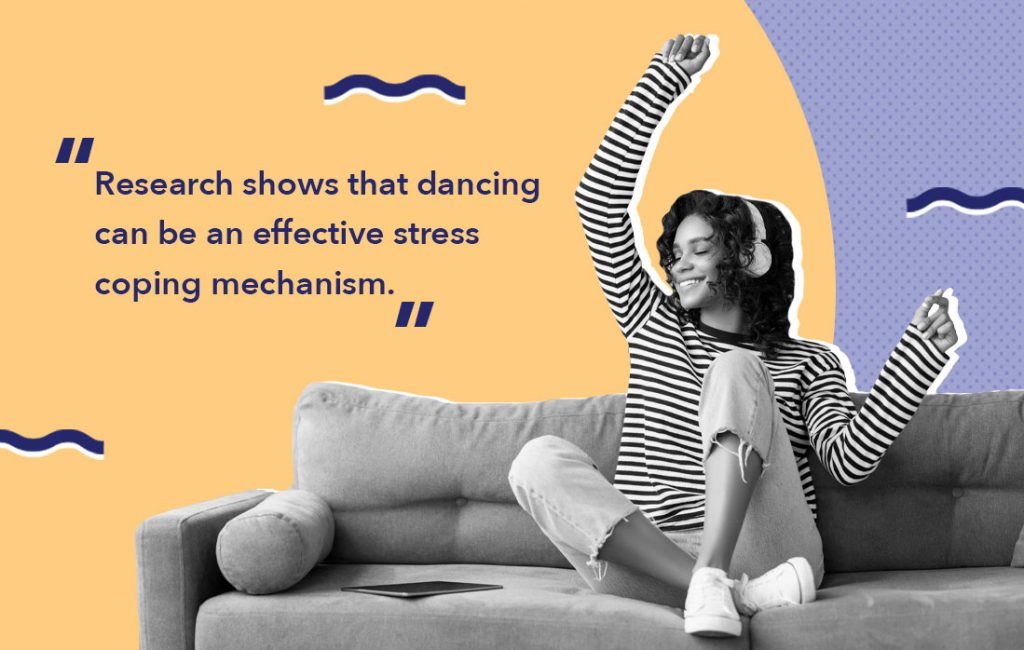
Research shows that dancing can also be an effective stress coping mechanism. (8) Create a playlist ahead of time with some of your favorite songs and take a dance break when you are feeling very stressed.
Connect With Mother Nature
Finding moments to connect with different aspects of nature can be very helpful for stress reduction.
Licensed marriage and family therapist, Monica Elden, recommends grounding: going outside and putting your bare feet on the earth. She also says to engage your other senses, “Go and notice something pleasing in nature using as many senses as possible: Can you see the sun shining through a tree, feel the wind on your face, smell a flower?” Another tip is going outside to look at the stars. Monica explains that “it helps to relax and put things into perspective. The problems you thought were overwhelming during the day look small and manageable when you contemplate your size relative to the universe.” (This can also be a great pre-bedtime calming ritual!)
In addition to the natural environment, animals can also help in stress reduction. Monica says that horses in particular have become well known for their assistance in stress management. She says, “They are stress detectors. If you are stressed they will know it and are less likely to cooperate.” (9)
Dr. Claney, shares this sentiment and suggests that watching a live stream of puppies or other animals playing together can provide similar benefits.
How Has Our Stress Changed in Recent Years?
If you think everyone has been more stressed lately, you might be right. Harvard University notes that, in recent history, the spread of the coronavirus pandemic, increasing threat of climate change, and — in the United States — a divisive political landscape all contribute to more stress. (10) However, they’re not the only factors contributing to increased stress. A 2021 study in Weekly found that the reasons adults in the US currently experience stress are due to the following:
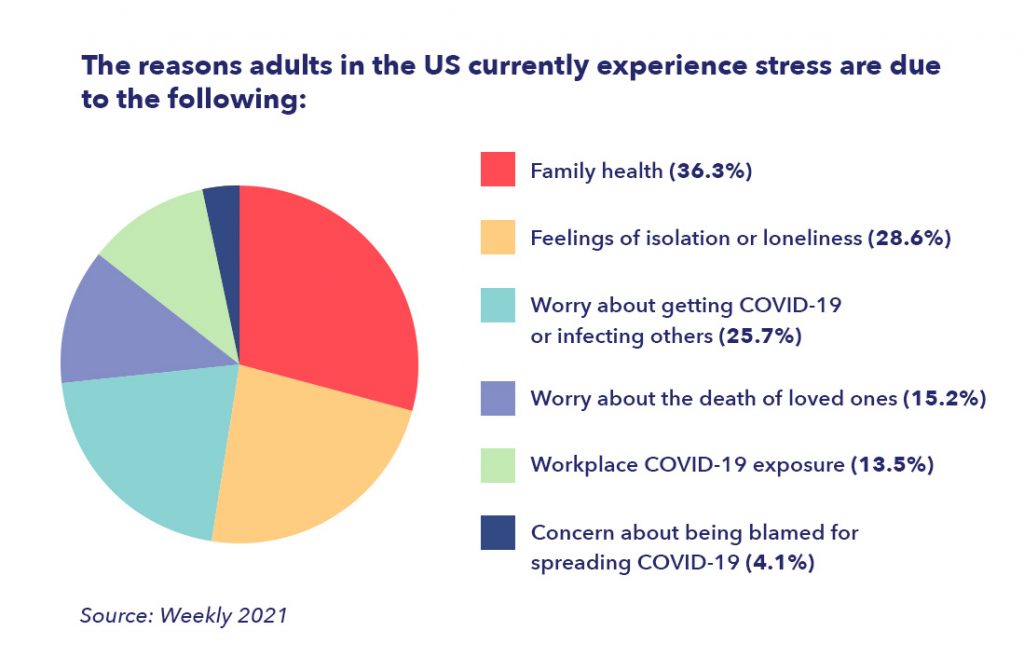
- Family health (36.3%)
- Feelings of isolation or loneliness (28.6%)
- Worry about getting COVID-19 or infecting others (25.7%)
- Worry about the death of loved ones (15.2%)
- Workplace COVID-19 exposure (13.5%)
- Concern about being blamed for spreading COVID-19 (4.1%) (11)
Dr. Mazzei says that higher stress levels in recent years have caused an increase in sleep issues among her patients. Dr. Gay says that those most likely to develop sleep difficulties related to the stress of the pandemic include ethnic minorities, women, single parents, young adults, and anyone who is responsible for their family’s healthcare. “Studies show that ethnic minorities have been disproportionately affected by the virus itself, as well as the financial hardships it brings. This contributes to increased reports of stress, anxiety, and depression as communities try to adapt and recover,” she says. (12)
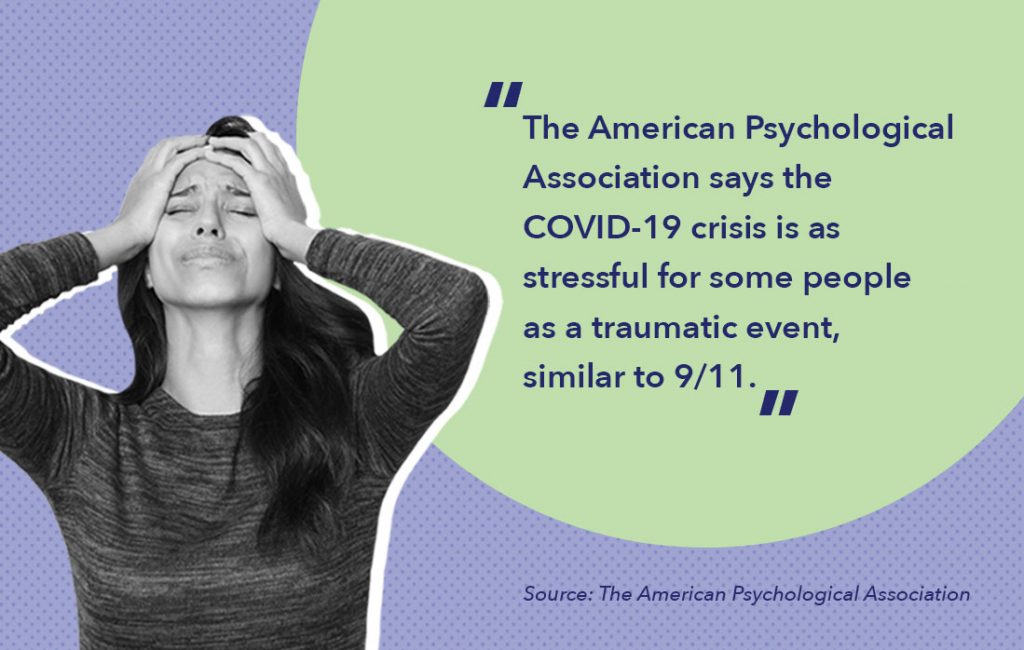
The American Psychological Association says the COVID-19 crisis is as stressful for some people as a traumatic event, similar to 9/11. (13) A 2020 study in The International Journal of Cognitive Therapy found that, since the pandemic began, people in the USA are just as anxious about the economy as their health. (14)
Instances of stress-related anxiety and depression are also up. A 2020 survey from the US Census Bureau found:
- Adults living alone between the ages of 18 and 44 were nearly 11% more likely to report stress than those over 44.
- Adults living alone who had poor health reported a higher likelihood of both anxiety and depression.
- Adults living alone who either lost employment or expected to lose employment were 19% and 18% more likely to report anxiety and depression, respectively, than those who were not in a similar position. (15)
Katherine explains that high levels of anxiety hinder sleep. She said that her organization found that insomnia cases have risen 63% since April 2020, with sufferers commonly attributing this to pandemic-related stress.
Academics are another reason why many adults have recently experienced stress. In 2018 Purdue University found that 45% of college students reported more than average stress levels and 87% felt overwhelmed at least once a year by everything they needed to get done. (16)
Politics can also drive us up the wall. According to Lydia Antonatos, a licensed mental health counselor, the political climate contributes to national stress levels. She says uncertainty regarding our country’s future, fear of life getting worse, and the way in which social media divides people all contribute to higher stress levels and consequently more sleep issues.
Some adults also deal with job-related stress. For example, a 2019 survey by the National Institute of Justice found that stress levels among New Jersey law enforcement officers were so high that 27% reported experiencing symptoms of post-traumatic stress disorder (PTSD). (17) PTSD can mess with sleep because it can cause flashbacks to negative events or distressing thoughts. (18)
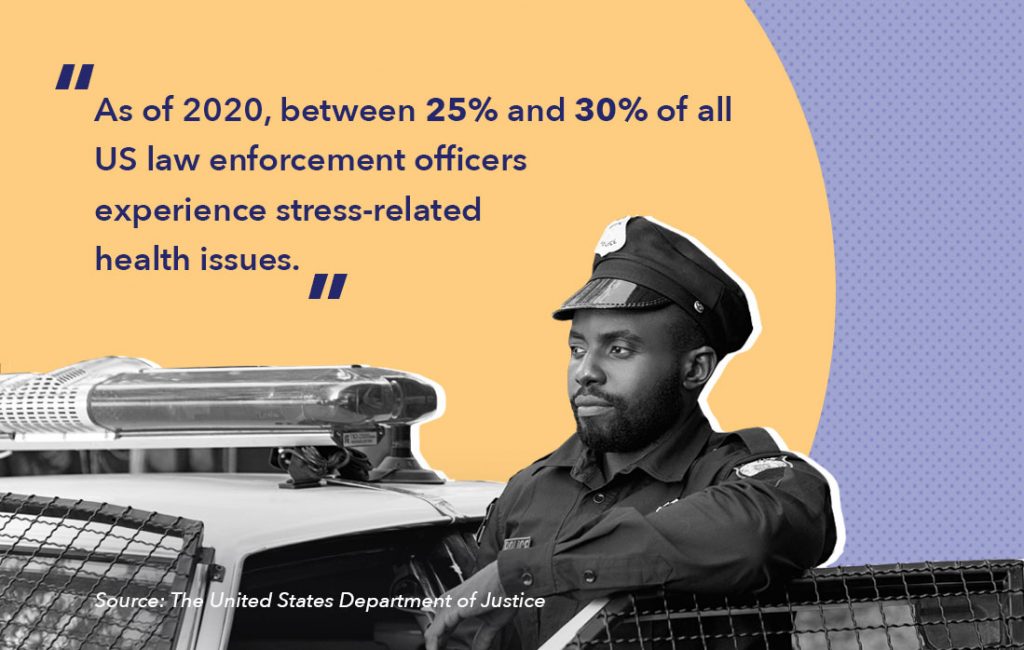
The United States Department of Justice reports that, as of 2020, between 25% and 30% of all US law enforcement officers experience stress-related health issues. (19) These issues primarily include high blood pressure and coronary heart disease, both which are linked to an increased risk of developing sleep issues.
Because of the link between high stress and poor sleep, these recent stress trends indicate an increase in sleep issues caused by stress. The good news is there are ways to mitigate these problems.
Last Word From Sleepopolis
As the COVID-19 pandemic continues to shape our daily lives, it’s understandable if you’re feeling unusually stressed. Thankfully, there are ways to combat stress for better sleep, like avoiding pressuring yourself into sleeping, working on practicing healthy sleep hygiene, and taking care of your emotional state. If your stress, anxiety or depression are heavily affected by stress, speak to a healthcare provider to determine the best treatment plan for you.
References
- “5 Things You Should Know About Stress.” National Institute of Mental Health. https://www.nimh.nih.gov/health/publications/stress/index.shtml
- Prather, A et al. Impact of Sleep Quality on Amygdala Reactivity, Negative Affect, and Perceived Stress. Psychosomatic Medicine. May 2013.
- Kashani, M et al. Perceived stress correlates with disturbed sleep: A link connecting stress and cardiovascular disease. The International Journal on the Biology of Stress. Jun 19, 2011.
- “Get Enough Sleep. Office of Disease Prevention and Health Promotion. https://health.gov/myhealthfinder/topics/everyday-healthy-living/mental-health-and-relationships/get-enough-sleep
- “Protect your brain from stress. Harvard Health Publishing. https://www.health.harvard.edu/mind-and-mood/protect-your-brain-from-stress
- Wunsch, K et al. The effect of physical activity on sleep quality, well-being, and affect in academic stress periods. Nature and Science of Sleep. Apr 26, 2017.
- Stults-Kolehmainen, M et al. The Effects of Stress on Physical Activity and Exercise. Sports Medicine. Jan 2014.
- Yasuhiro Kotera, PhD. “How Dance Can Help You Improve Your Wellbeing.” University of Derby. Mar 3, 2020, https://www.derby.ac.uk/blog/how-dance-can-help-you-improve-your-wellbeing/
- “‘Horsing Around’ Reduces Stress in Youth.” Washington State University. https://news.cahnrs.wsu.edu/article/horsing-around-reduces-stress-in-youth/
- “A Stressful New Decade: The latest information on how stress shapes our minds and bodies.” Harvard University. Mar 6, 2020, https://sitn.hms.harvard.edu/flash/2020/a-stressful-new-decade-the-latest-information-on-how-stress-shapes-our-minds-and-bodies/
- McKnight-Eily LR, Okoro CA, Strine TW, et al. Racial and Ethnic Disparities in the Prevalence of Stress and Worry, Mental Health Conditions, and Increased Substance Use Among Adults During the COVID-19 Pandemic — United States, April and May 2020. Centers for Disease Control and Prevention.
- “Health Equity Considerations and Racial and Ethnic Minority Groups.” National Center for Immunization and Respiratory Diseases. Apr 19, 2021, https://www.cdc.gov/coronavirus/2019-ncov/community/health-equity/race-ethnicity.html
- Horesh, D. et al. Traumatic stress in the age of COVID-19: A call to close critical gaps and adapt to new realities. Psychological Trauma: Theory, Research, Practice, and Policy. Mar 27, 2020.
- Bareket-Bojmel, L et al. COVID-19-Related Economic Anxiety Is As High as Health Anxiety: Findings from the USA, the UK, and Israel. International Journal of Cognitive Therapy. May 29, 2020.
- File, T., & Marlay, M. “Living Alone Has More Impact on Mental Health of Young Adults Than Older Adults.” Jan 13, 2021, https://www.census.gov/library/stories/2021/01/young-adults-living-alone-report-anxiety-depression-during-pandemic.html
- “The College Student’s Guide to Stress Management.” Purdue University Global. July 2, 2020, https://www.purdueglobal.edu/blog/student-life/college-students-guide-to-stress-management-infographic/
- Jim Dawson, “Fighting Stress in the Law Enforcement Community,” Apr 8, 2019, nij.ojp.gov: https://nij.ojp.gov/topics/articles/fighting-stress-law-enforcement-community
- “Post-Traumatic Stress Disorder.” The National Institute of Mental Health, 2020, https://www.nimh.nih.gov/health/publications/post-traumatic-stress-disorder-ptsd/index.shtml
- Barr, William P., International Association of Chiefs of Police Officer Safety and Wellness Symposium, United States Department of Justice, Feb 27, 2020, https://www.justice.gov/opa/speech/attorney-general-william-p-barr-delivers-remarks-international-association-chiefs-police